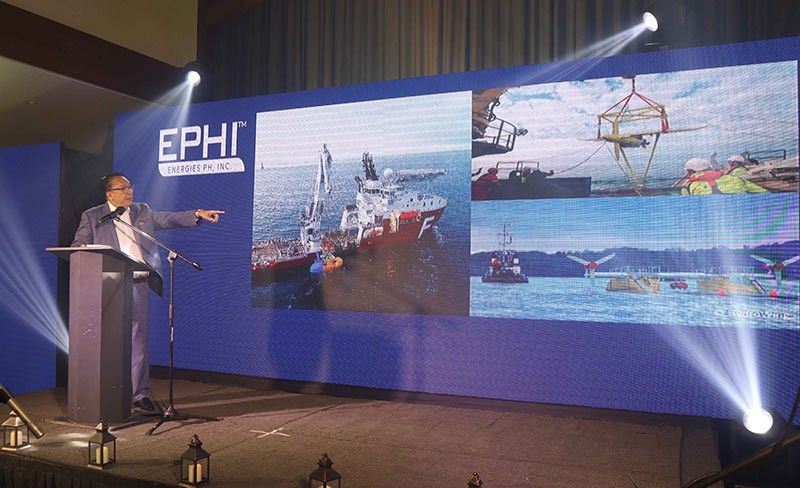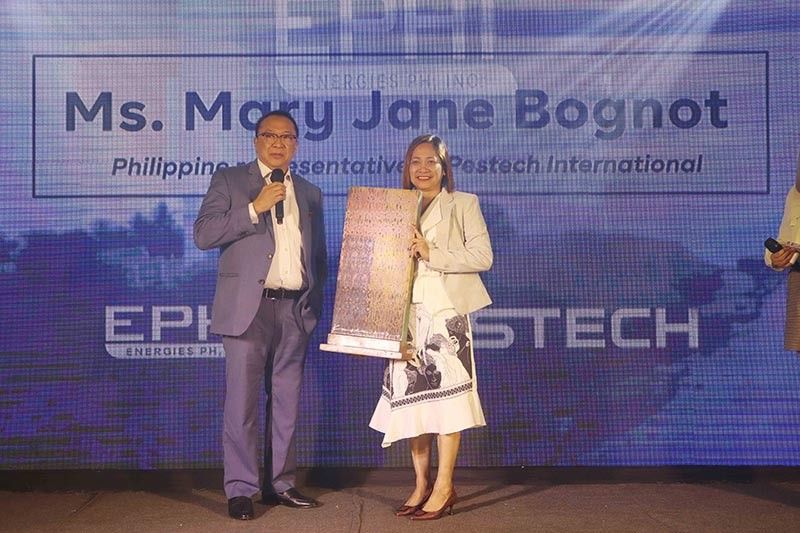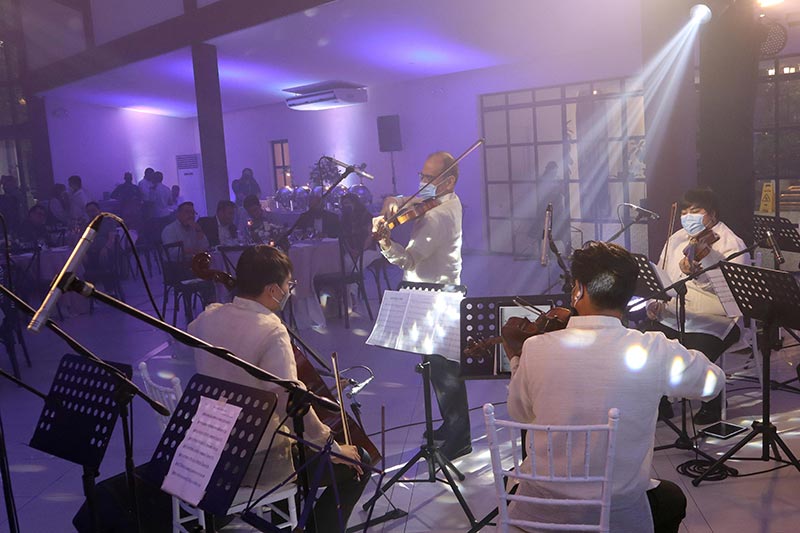Energies PH Inc. all set to harness energy from Southeast Asia's first tidal power plant
MANILA, Philippines — Southeast Asia’s first tidal power generation plant embeds and rises in remote Capul Island of Northern Samar along the San Bernardino Strait.
This was announced by Energies PH Inc. (EPHI) Co-chairman and CEO Antonio Ver during a launch last June 14 at the Mira Nila Heritage House in Quezon City.
EPHI, chartered in the Securities and Exchange Commission on September 27, 2021, is up for public listing next year. It embarks on the Philippines’ pioneering and first-ever tidal power plant with the intent of replicating this in several off-grid sites all over the country to provide electricity in the hinterlands.
It has been a long and tedious task, Ver said, having initiated the project 12 years ago. Technology development and the barriers to promoting renewables did not deter him from achieving confirmation of commerciality despite the pandemic.

Its project company San Bernardino Ocean Power Corporation achieved its Confirmation of Commerciality for the first-ever tidal power plant from the Department of Energy on July 14, 2020.
EPHI has a combined track record and experience of more than 50 years. It commits to harnessing both the power of tidal energy and solar energy as a bundled strategy that incorporates the use of recharged hydrogen fuel cells, another first in the country.
EPHI’s core business is the development of power generation plants. It protects vital processes of lowering production costs, promoting innovation, engaging competent teams and upholding compliant management to achieve optimal results in the delivery of reliable, affordable and clean electric power.
EPHI’s mission is further propelled with the newly enacted Microgrid Systems Act or Republic Act 11646 in place. The law is aimed at achieving 100% electrification of the country by encouraging the installation of microgrids in unserved or underserved areas which are 30% of the total present population. Ver said the Renewable Energy Law is good, however, it falls short of execution.
"The power business is now an existential business. We have the responsibility not just to do well, but to do good and do right. We see Capul as our catapult to achieving our goal of helping alleviate poverty while tracking UN Sustainability Goals," he said during the launch.

Ver was the founder and first elected president of Asia-Pacific Basin for Energy Strategies which is a think-tank on Special Consultative Status with the United Nations Economic and Social Council.
"The electric power that reaches families in remote areas enables them to have better access to education, health services as well as livelihood opportunities," added Ver, who was also independent director of the Philippine Electricity Market Corporation, managing the Wholesale Electricity Spot Market from June 2009 to June 2015 and was Program Director of Build-Operate-Transfer Projects of the Department of Transportation and Communications from 1989 to 1995.
Pestech International is the contractor in integrating the Microgrid project into Capul Tidal power. Its CEO, Vind Sidhu, sent his congratulatory message to EPHI on its launch rites.
Gung ho about working with EPHI, he is encouraged with the cooperation he believes will take EPHI in the leadership position in Distributed Energy Resources.
Tidal power is sourced from the rise and fall of the tides, with energy from the surge, as well as the pullback of ocean water. San Bernardino Strait is a suitable site with strong currents flowing from the Samar Sea and the Philippine Sea. It separates the Bicol Peninsula of Luzon from Samar in the south.
Capul island has its place in history as the site of a lighthouse for vessels of the galleon trade during the Hispanic times. It is said that Capul's name is derived from Acapulco, the Mexican destination of the galleons from Manila.
Other tidal power generation sites eyed by EPHI are in San Antonio Island, also in Northern Samar, and the Calintaan Island in Matnog, Sorsogon.

EPHI received from the DOE last April 29 the clearance to go to the National Grid Corporation of the Philippines to conduct a System Impact Study for Liquified natural gas-fired (LNG ) combined cycle gas turbine (CCGT) power plants in Quezon Province and Camarines Norte. EPHI has two more sites for LNG-CCGT projects in Pangasinan and Misamis Oriental.
Solar energy projects that are set to generate some 500 megawatts are being set up in Quezon, Balingasag and Camarines Norte.
"EPHI is heartened by the support of our stakeholders who believe the company and the Philippines, an archipelago of 7,100 islands, have the know-how and foresight to make a go of solutions that will benefit the coming generations," Ver said.
“Perhaps, they will listen now?” he concluded.
- Latest































